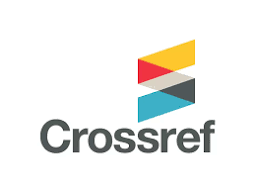Frequency of Hepatitis C Virus genotypes among non-responders to combination therapy
Keywords:
Hepatitis C Virus, HCV Genotype, Antiviral therapyAbstract
Background: Hepatitis C Virus has been characterized into seven major genotypes and multiple subtypes which display variable distribution across the globe. Accurate identification of Hepatitis C Virus genotypes prior to initiating antiviral therapy plays a vital role in the management of chronic Hepatitis C Virus infected patients. Diverse genotypes of Hepatitis C Virus differ with respect to treatment response, nature as well as duration of therapy. Due to treatment associated side effects and high costs, Hepatitis C Virus genotype determination especially among non-responders is required to help these patients in selection of appropriate antiviral therapy.
Objectives: The aim of this study was to find out the frequency of HCV genotypes among non-responders to combination therapy.
Patients and Methods: This descriptive study was carried out at Institute of Basic Medical Sciences, Khyber Medical University Peshawar from January 2016 to June 2016 after institutional ethical approval. Serum samples were collected from 110 chronic HV infected patients who failed to respond to either Conventional or Pegylated Interferon therapy. Identification of HCV genotype was performed using two sets of newly designed primers in a modified type specific nested PCR based genotyping assay. Agarose gel electrophoresis was carried out for identification of genotype specific PCR product.
Results: Among 110 actively infected samples, majority (53.4%) of the infections were attributed to HCV genotype 3a. Among other subtypes, HCV 1b (17.1%) and 1a (9.4%) genotypes were predominantly observed. HCV 3b, 2a and 2b accounted for infection in 8.2%, 5.4% and 3.3% of the patients respectively. Mixed infections with more than one type in a single specimen were found in 2.1% of the isolates, while 1.1% of the samples remained untypeable.
Conclusion: The current study reports a high frequency of Hepatitis C Virus 3a among studied isolates. Emerging resistance against antiviral therapy might be attributed to HCV 1b, 1a and other subtypes observed among non-responders.
Downloads
Published
Issue
Section
License
Copyright (c) 2019 Amina Gul; Naheed Gul, Syed Luqman Shuaib, Shahina Mumtaz, Ijaz Ali, Jawad Ahmed

This work is licensed under a Creative Commons Attribution-NonCommercial 4.0 International License.
Readers may “Share-copy and redistribute the material in any medium or format” and “Adapt-remix, transform, and build upon the material”. The readers must give appropriate credit to the source of the material and indicate if changes were made to the material. Readers may not use the material for commercial purpose. The readers may not apply legal terms or technological measures that legally restrict others from doing anything the license permits.


